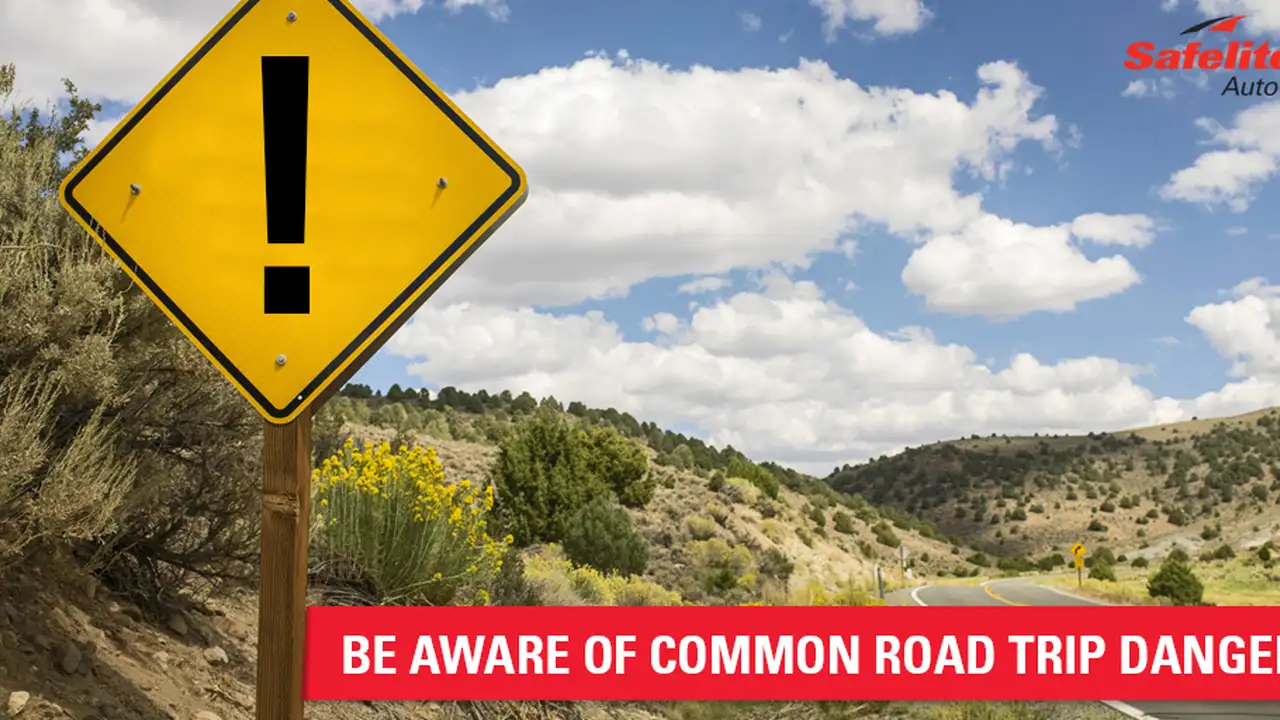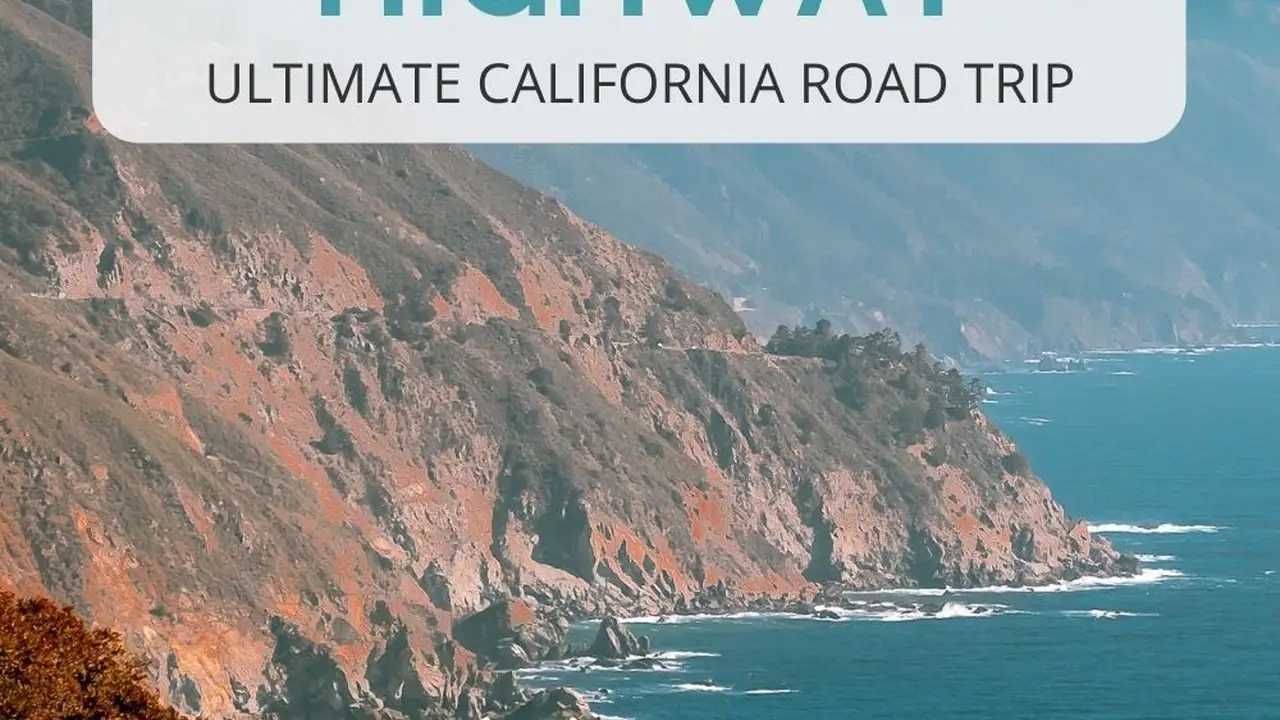5 Hidden Road Trip Dangers

Road Trip Safety First Recognizing Common Road Trip Hazards
Road trips are often romanticized in movies and songs. The open road, the wind in your hair, the freedom to explore at your own pace. But the reality of a road trip often includes long hours behind the wheel, unfamiliar terrain, and potential hazards that can quickly turn your dream vacation into a nightmare. Before you pack your bags and hit the highway, let's uncover some hidden road trip dangers and how to prepare for them.
Driver Fatigue A Silent Road Trip Threat
One of the most significant dangers on any road trip is driver fatigue. The monotony of highway driving, combined with irregular sleep schedules and the pressure to reach your destination, can lead to drowsiness and impaired judgment. Imagine trying to stay alert after driving eight hours straight, only fueled by coffee and sheer willpower. It's a recipe for disaster.
Signs of Driver Fatigue:
- Frequent yawning or blinking
- Difficulty remembering the last few miles driven
- Drifting from your lane
- Feeling restless or irritable
- Heavy eyelids
Combating Driver Fatigue:
- Plan Regular Breaks: Stop every two hours for at least 15 minutes. Get out of the car, stretch, and walk around.
- Share Driving Responsibilities: If possible, travel with someone who can share the driving duties.
- Get Enough Sleep: Prioritize sleep in the days leading up to your trip. Aim for 7-8 hours of sleep each night.
- Avoid Driving During Peak Fatigue Hours: Be aware that your body's natural circadian rhythm may make you more tired in the early afternoon and late at night.
- Stay Hydrated: Dehydration can worsen fatigue. Drink plenty of water throughout the day.
- Avoid Heavy Meals: Large, heavy meals can make you feel sluggish and tired. Opt for lighter, healthier options.
- Consider a Driver Alertness System: Some vehicles come equipped with systems that monitor driver behavior and provide warnings if signs of fatigue are detected.
Unexpected Vehicle Malfunctions Avoiding Roadside Breakdowns
A breakdown in the middle of nowhere can be a major inconvenience, and in some cases, a dangerous situation. Regular vehicle maintenance is crucial to prevent unexpected malfunctions. Think about it – your car is your lifeline on a road trip. Ignoring warning signs or postponing maintenance can leave you stranded and vulnerable.
Common Vehicle Malfunctions:
- Flat Tire
- Dead Battery
- Overheating Engine
- Brake Failure
- Fluid Leaks
Preventing Vehicle Malfunctions:
- Pre-Trip Inspection: Before you leave, check your tires (pressure and tread), fluids (oil, coolant, brake fluid, windshield washer fluid), battery, and lights.
- Regular Maintenance: Follow your vehicle's recommended maintenance schedule.
- Carry a Basic Toolkit: Include essential tools like a wrench, screwdriver, pliers, jumper cables, and a tire pressure gauge.
- Emergency Kit: Pack an emergency kit with items like a flashlight, first-aid kit, flares, water, snacks, and a blanket.
- Roadside Assistance: Consider purchasing roadside assistance coverage from a provider like AAA or your insurance company.
Navigation Errors Getting Lost and Staying Safe
Even with GPS and smartphone navigation, getting lost on a road trip is surprisingly common. Relying solely on technology can be risky, especially in areas with poor cell service or inaccurate maps. Imagine driving for hours, only to realize you've taken a wrong turn and are completely off course.
Preventing Navigation Errors:
- Plan Your Route in Advance: Don't just rely on your GPS to guide you. Study your route beforehand and identify key landmarks and exits.
- Download Offline Maps: Download maps for your destination and surrounding areas to your smartphone or GPS device. This will allow you to navigate even without cell service.
- Carry a Physical Map: A paper map can be a lifesaver if your electronic devices fail.
- Trust Your Instincts: If something doesn't feel right, don't hesitate to pull over and double-check your route.
- Inform Someone of Your Route: Let a friend or family member know your planned route and estimated arrival time.
Wildlife Encounters Avoiding Animal Collisions on the Road
In many areas, especially rural ones, wildlife encounters are a common road trip hazard. Animals may dart across the road unexpectedly, posing a serious risk of collision. Consider the potential damage to your vehicle, not to mention the harm to the animal itself.
Preventing Wildlife Collisions:
- Be Aware of Your Surroundings: Pay attention to wildlife crossing signs and be extra cautious in areas known for animal activity.
- Drive Slowly at Dawn and Dusk: These are the times when animals are most active.
- Use High Beams When Appropriate: High beams can help you spot animals on the side of the road.
- If You See an Animal, Slow Down: Don't swerve suddenly, as this could cause you to lose control of your vehicle.
- Honk Your Horn: Honking your horn may scare the animal away.
Theft and Security Protecting Your Belongings on the Road
Road trips can make you vulnerable to theft, especially if you're leaving your vehicle unattended in unfamiliar areas. Taking precautions to protect your belongings is essential. Imagine returning to your car after a hike, only to find that your luggage and valuables are gone.
Protecting Your Belongings:
- Park in Well-Lit Areas: Choose parking spots that are visible and well-lit.
- Lock Your Doors: Always lock your doors, even if you're only leaving your vehicle for a few minutes.
- Keep Valuables Out of Sight: Don't leave valuables in plain view. Store them in the trunk or under the seats.
- Use a Steering Wheel Lock: A steering wheel lock can deter thieves.
- Be Aware of Your Surroundings: Pay attention to your surroundings and be wary of suspicious individuals.
Road Trip Essentials Must-Have Products for a Safe and Enjoyable Journey
Having the right gear can make all the difference on a road trip. Here are some essential products that can help you stay safe, comfortable, and prepared for anything.
Portable Jump Starter Ensuring a Reliable Start Every Time
A dead battery can derail your road trip plans. A portable jump starter is a lifesaver in these situations. These compact devices can provide enough power to jump-start your vehicle without needing another car. No more waiting for roadside assistance or relying on the kindness of strangers.
Product Recommendation: NOCO Boost Plus GB40 1000 Amp 12-Volt UltraSafe Lithium Jump Starter Box
Use Cases:
- Jump-starting your car, truck, SUV, or motorcycle.
- Charging your smartphone, tablet, or other USB devices.
- Providing emergency lighting with the built-in LED flashlight.
Product Comparison:
- NOCO Boost Plus GB40: Compact, lightweight, and easy to use. Suitable for most vehicles.
- GOOLOO GP4000 Jump Starter: Higher peak current, suitable for larger vehicles. Includes more features like a tire inflator.
- STANLEY J5C09 Jump Starter: More affordable option, but less powerful.
Detailed Information:
- Price: Around $100
- Peak Current: 1000 Amps
- Battery Type: Lithium-ion
- USB Charging Ports: Yes
- LED Flashlight: Yes
Dash Cam Capturing the Road and Providing Evidence
A dash cam can be a valuable tool for documenting accidents, traffic stops, and other unexpected events. It can provide crucial evidence in case of a collision or dispute. Think of it as an unbiased witness that's always recording.
Product Recommendation: Vantrue N4 3 Channel Dash Cam
Use Cases:
- Recording accidents and providing evidence for insurance claims.
- Capturing scenic drives and memorable moments.
- Monitoring your vehicle while it's parked.
Product Comparison:
- Vantrue N4: 3-channel recording (front, interior, rear), excellent video quality, and parking mode.
- Garmin Dash Cam 67W: Wide field of view, voice control, and automatic incident detection.
- Rexing V1P Pro: More affordable option with good video quality.
Detailed Information:
- Price: Around $250
- Resolution: 4K front, 1080p interior, 1080p rear
- Field of View: 155° front, 160° interior, 160° rear
- Parking Mode: Yes
- GPS: Optional
Portable Tire Inflator Maintaining Optimal Tire Pressure on the Go
Maintaining proper tire pressure is crucial for fuel efficiency, handling, and safety. A portable tire inflator allows you to easily inflate your tires whenever and wherever you need to. No more searching for gas stations with working air pumps.
Product Recommendation: AstroAI Air Compressor Tire Inflator Portable Air Pump
Use Cases:
- Inflating car tires, bicycle tires, and inflatable toys.
- Checking tire pressure with the built-in gauge.
- Providing emergency lighting with the LED flashlight.
Product Comparison:
- AstroAI Air Compressor: Compact, easy to use, and inflates tires quickly.
- EPAuto Portable Air Compressor: Similar features to the AstroAI, but slightly more powerful.
- Viair 85P Portable Air Compressor: More expensive option, but more durable and reliable.
Detailed Information:
- Price: Around $30
- Maximum Pressure: 150 PSI
- Power Source: 12V DC
- LED Flashlight: Yes
- Digital Display: Yes
First Aid Kit Essential for Handling Minor Injuries on the Road
Accidents happen. A well-stocked first-aid kit can help you treat minor injuries and provide temporary relief until you can seek professional medical attention. Don't underestimate the importance of being prepared for cuts, scrapes, and burns.
Product Recommendation: First Aid Only All-Purpose First Aid Kit
Use Cases:
- Treating cuts, scrapes, burns, and insect bites.
- Providing pain relief with pain relievers and antiseptic wipes.
- Stabilizing injuries until you can seek professional medical attention.
Product Comparison:
- First Aid Only Kit: Comprehensive kit with a wide range of supplies.
- Johnson & Johnson All-Purpose First Aid Kit: Similar to the First Aid Only kit, but with different brand-name products.
- Coleman All Purpose Mini First Aid Kit: Smaller and more compact option for shorter trips.
Detailed Information:
- Price: Around $20
- Contents: Bandages, antiseptic wipes, pain relievers, gauze pads, tape, scissors, tweezers, and more.
- Case: Durable and portable
Roadside Emergency Kit Preparing for Unexpected Situations
A roadside emergency kit contains essential items to help you handle unexpected situations like breakdowns, flat tires, or accidents. It's a crucial safety net that can provide peace of mind on your road trip.
Product Recommendation: Lifeline AAA Excursion Road Kit
Use Cases:
- Providing emergency assistance in case of a breakdown or accident.
- Changing a flat tire with the included tools.
- Providing visibility with the reflective warning triangle and jumper cables.
Product Comparison:
- Lifeline AAA Excursion Road Kit: Comprehensive kit with a wide range of essential items.
- Always Prepared Roadside Assistance Emergency Kit: Similar to the Lifeline kit, but with different brand-name products.
- Automotive Roadside Emergency Kit: More affordable option, but with fewer items.
Detailed Information:
- Price: Around $50
- Contents: Jumper cables, tow rope, reflective warning triangle, first-aid kit, flashlight, gloves, and more.
- Case: Durable and portable
Road Trip Accommodation Options Choosing the Right Place to Rest
Where you choose to stay on your road trip can significantly impact your overall experience. Here's a look at various accommodation options, from budget-friendly to luxurious.
Budget Hotels and Motels Affordable and Convenient Options
Budget hotels and motels are a great option for travelers who are looking for affordable and convenient accommodation. These establishments typically offer basic amenities like a bed, bathroom, and TV. While they may not be the most luxurious option, they can provide a comfortable and safe place to rest your head after a long day of driving.
Pros:
- Affordable
- Conveniently located
- Basic amenities
Cons:
- Limited amenities
- May not be as clean or well-maintained as other options
- Can be noisy
Popular Chains:
- Motel 6
- Super 8
- Days Inn
Mid-Range Hotels Balancing Comfort and Affordability
Mid-range hotels offer a balance of comfort and affordability. These establishments typically offer more amenities than budget hotels, such as a swimming pool, fitness center, and complimentary breakfast. They are a good option for travelers who want a more comfortable stay without breaking the bank.
Pros:
- More amenities than budget hotels
- Comfortable rooms
- Good value for money
Cons:
- More expensive than budget hotels
- May not be as luxurious as high-end hotels
Popular Chains:
- Holiday Inn Express
- Hampton Inn
- Best Western
Luxury Hotels and Resorts Indulging in a Pampered Experience
Luxury hotels and resorts offer the ultimate in comfort and service. These establishments typically offer a wide range of amenities, such as fine dining restaurants, spas, and concierge services. They are a good option for travelers who want to indulge in a pampered experience.
Pros:
- Luxurious amenities
- Excellent service
- Beautifully designed rooms
Cons:
- Very expensive
- May not be suitable for budget travelers
Popular Chains:
- Four Seasons
- Ritz-Carlton
- St. Regis
Camping Embracing Nature and Saving Money
Camping is a great option for travelers who want to embrace nature and save money. Camping can range from pitching a tent in a campground to staying in a fully equipped RV. It's a great way to experience the outdoors and connect with nature.
Pros:
- Affordable
- Opportunity to connect with nature
- Flexible
Cons:
- Can be uncomfortable
- Requires more planning and preparation
- Weather dependent
Camping Options:
- Tent Camping
- RV Camping
- Glamping
Airbnb Unique and Personalized Stays
Airbnb offers a unique and personalized accommodation experience. You can rent a room, an apartment, or even an entire house from local hosts. This allows you to experience a destination like a local and often find more affordable and unique accommodations than traditional hotels.
Pros:
- Unique and personalized stays
- Often more affordable than hotels
- Opportunity to connect with locals
Cons:
- Can be inconsistent in quality
- May require more communication with the host
- Less predictable than hotels
Road Trip Entertainment Keeping Boredom at Bay on Long Drives
Long hours on the road can lead to boredom and restlessness. Keeping yourself and your passengers entertained is essential for a smooth and enjoyable road trip.
Audiobooks Immersing Yourself in Stories
Audiobooks are a fantastic way to pass the time on long drives. You can immerse yourself in captivating stories, learn new things, or simply relax and enjoy the ride. Choose from a wide range of genres, from thrillers and mysteries to biographies and self-help books.
Popular Audiobook Platforms:
- Audible
- LibriVox (Free)
- Google Play Books
Podcasts Engaging Conversations and Informative Content
Podcasts offer a diverse range of engaging conversations and informative content. You can listen to news, comedy, true crime, history, and much more. Podcasts are a great way to learn something new or simply enjoy a good laugh.
Popular Podcast Platforms:
- Spotify
- Apple Podcasts
- Google Podcasts
Music Creating the Perfect Road Trip Soundtrack
Music is a classic road trip entertainment option. Create a playlist of your favorite songs or discover new artists. Sing along, dance in your seat, and let the music fuel your journey.
Music Streaming Services:
- Spotify
- Apple Music
- Amazon Music
Travel Games Fun for the Whole Family
Travel games can help keep everyone entertained, especially kids. Choose from classic games like "I Spy" and "20 Questions" or try new and creative games. These games can help pass the time and create lasting memories.
Travel Game Ideas:
- License Plate Game
- Road Trip Bingo
- Storytelling Game
Learn a New Language Utilizing Travel Time Productively
Use your road trip time to learn a new language. Download a language learning app and practice your vocabulary and grammar while you drive. This is a productive and rewarding way to make the most of your travel time.
Language Learning Apps:
- Duolingo
- Babbel
- Memrise
:max_bytes(150000):strip_icc()/277019-baked-pork-chops-with-cream-of-mushroom-soup-DDMFS-beauty-4x3-BG-7505-5762b731cf30447d9cbbbbbf387beafa.jpg)






